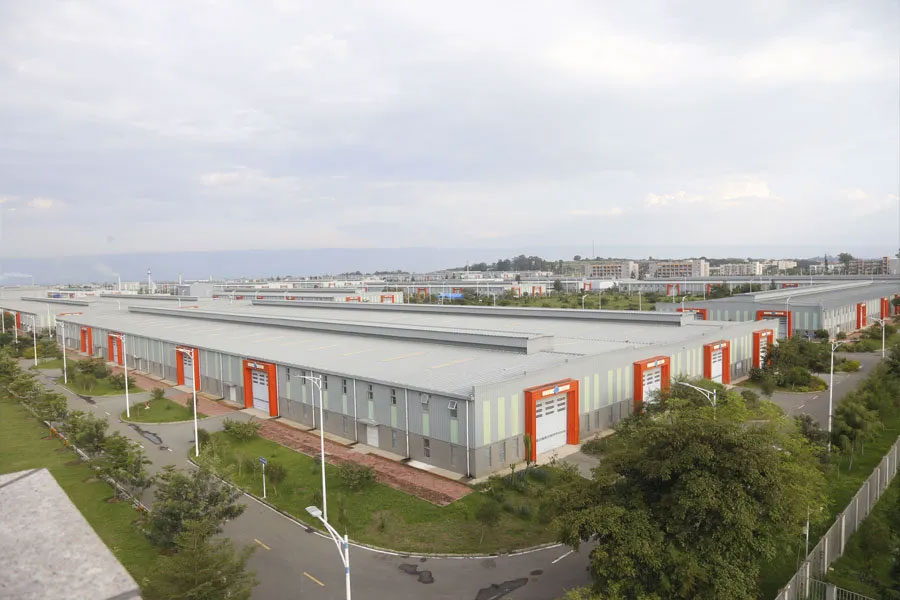
Fortune News | Nov 30,2019
Awash International Bank (AIB) has launched a program its senior executives christened as a “bridge” reaching out to the underserved segment of the market through microfinance institutions. It has made 5.5 billion Br available in credit for small enterprises and farmers to be disbursed through the microfinance institutions (MFIs) in the coming three years.
Managers of nine microfinance institutions have entered into deals to borrow from Awash Bank at a 13pc lending interest rate.
“Clean loan records, capital flow, and repayment capacity are the criteria we require,” said Tsehay Shiferaw, president of Awash Bank.
Awash Bank is not a pioneer in courting microfinance institutions to reach out to the underserved segment in the market. Dashen and Enat banks have previously offered similar loan products to micro and small enterprises that could not produce assets for collateral. Two years ago, Dashen Bank availed five billion Birr in credit to medium-sized enterprises where borrowers were required to raise half of the project cost. Enat Bank partnered last year with the Swedish International Development Cooperation Agency and Mercy Corps to avail 20 million dollars in credit to vulnerable women that do not have collateral.
Tsehay says Awash has disbursed 1.5 billion Br to the microfinance institutions through the “Bridges” programme, a five-year initiative launched by Mastercard Foundation in 2019. The programme looks to support up to 10 million people, providing credit through financial institutions until 2030. The Foundation has made 300 million dollars available to help the programme implemented by First Consult, a local consulting firm incorporated in 2005.
“We’re working with over 20 MFIs to expand access to financing,” said Henok Tenna, programme team leader at First Consult.
Last year, the banking industry disbursed 329 billion Br in loans, 21pc higher than the preceding year. The state-owned Commercial Bank of Ethiopia (CBE) and Development Bank of Ethiopia (DBE) accounted for a little over a third of the credit provided. The primary beneficiaries were close to 300,000 medium and large enterprises and individuals with high loan needs. Only less than five percent of small firms in Ethiopia enjoy access to credit.
Commercial banks do not have little appetite for lending without collateral. The value of the collateral decides if - or how much - can be borrowed. On average, banks demand collateral equivalent to 234pc of their approved loans.
However, five million people, mainly in rural areas, are served by 41 microfinance institutions. They had mobilised 52.5 billion Br in deposits by the end of last year, disbursing 69.3 billion Br in loans in the same period.
Wasasa Microfinance is among these that have partnered with Awash International Bank to expand its loan operations. Established 20 years ago with a paid-up capital of 200,000 Br, Wasasa operates 76 branches, mainly in the Oromia Regional State. Last year, it mobilised 450 million Br in savings and advanced 1.2 billion Br in credit. Wasasa sourced the additional fund by borrowing from banks, including the Cooperative Bank of Oromia (CBO).
Awash Bank had made 200 million Br in credit to Wasasa through the Bridges programme.
Wasasa thoroughly assesses the viability of projects before disbursing loans to individuals or groups, says Amsalu Alemayehu, chief executive officer (CEO).
Although microfinance institutions are better positioned to serve rural communities, borrowing costs are higher for them, observed Sewale Abate (PhD), lecturer of finance and investment at Addis Abeba University.
“Expanding access to finance is not only about availing funds to the disadvantaged,” he said. “It also entails the provision of credit with reasonable interest rates.”
Like most of its peers, Wasasa charges a lending rate between 18pc and 24pc.
Because farmers do not have bargaining power, they are forced to take loans at higher interest rates, Sewale argues.
Fikadu Negesse, 45, is among the farmers subjected to a higher credit cost. The father of six lives in the North Shewa Zone of Oromia Regional State. He borrowed 17,000 Br from Vision Fund Microfinance Institution after agreeing to pay back the loan in five months. He took out the loan on a 23pc interest rate to cover the increased fertiliser cost.
Established in 2006 with 300,000 Br in paid-up capital, Vision Fund has partnered with Awash Bank.
“There’s always a mismatch between demand and supply,” said Taye Chimdessa, CEO of Vision Fund.
The microfinance institution has thus far advanced 4.8 billion Br in credit, mobilising 1.9 billion Br in deposits. With 100 branches in Addis Abeba and six regional states, VisionFund has taken 550 million Br in credit from Awash Bank. Close to 75pc of the credit Vision Fund offers is through group lending schemes, disclosed Taye. The approach has its flaws, he revealed.
“Individual farmers might be forced to repay the loans in case others default,” he said.
Although they are few, farmers have other ways to access financing. They can access loans from commercial banks against movable assets like machinery after the central bank issued a directive two years ago. Banks are compelled to disburse at least five percent of their loans to businesses in the agricultural sector. Failure would subject them to double their agricultural portfolio the following year.
PUBLISHED ON
[ VOL
, NO
]

Fortune News | Nov 30,2019

Sunday with Eden | Dec 31,2022

Radar | May 20,2023


Fortune News | Jun 04,2022

Life Matters | Apr 26,2019

Radar | Aug 20,2022

Radar | Jun 22,2024

Radar | May 15,2021

Viewpoints | Mar 25,2023

Dec 22 , 2024 . By TIZITA SHEWAFERAW
Charged with transforming colossal state-owned enterprises into modern and competitiv...

Aug 18 , 2024 . By AKSAH ITALO
Although predictable Yonas Zerihun's job in the ride-hailing service is not immune to...

Jul 28 , 2024 . By TIZITA SHEWAFERAW
Unhabitual, perhaps too many, Samuel Gebreyohannes, 38, used to occasionally enjoy a couple of beers at breakfast. However, he recently swit...

Jul 13 , 2024 . By AKSAH ITALO
Investors who rely on tractors, trucks, and field vehicles for commuting, transporting commodities, and f...

Oct 25 , 2025
The regulatory machinery is on overdrive. In only two years, no fewer than 35 new pro...

Oct 18 , 2025
The political establishment, notably the ruling party and its top brass, has become p...

Oct 11 , 2025
Ladislas Farago, a roving Associated Press (AP) correspondent, arrived in Ethiopia in...

Oct 4 , 2025
Eyob Tekalegn (PhD) had been in the Governor's chair for only weeks when, on Septembe...